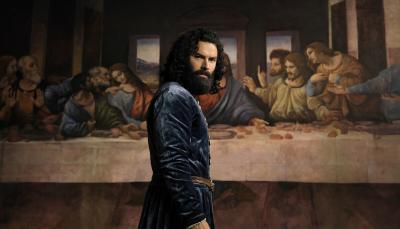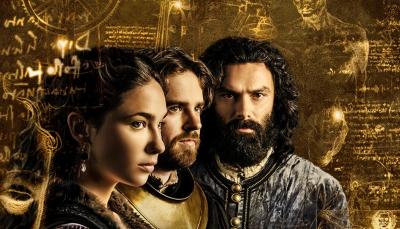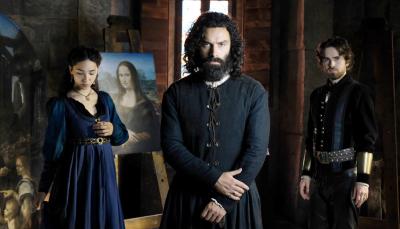The CW’s Messy ‘Leonardo’ Is Actually Kind of Fun
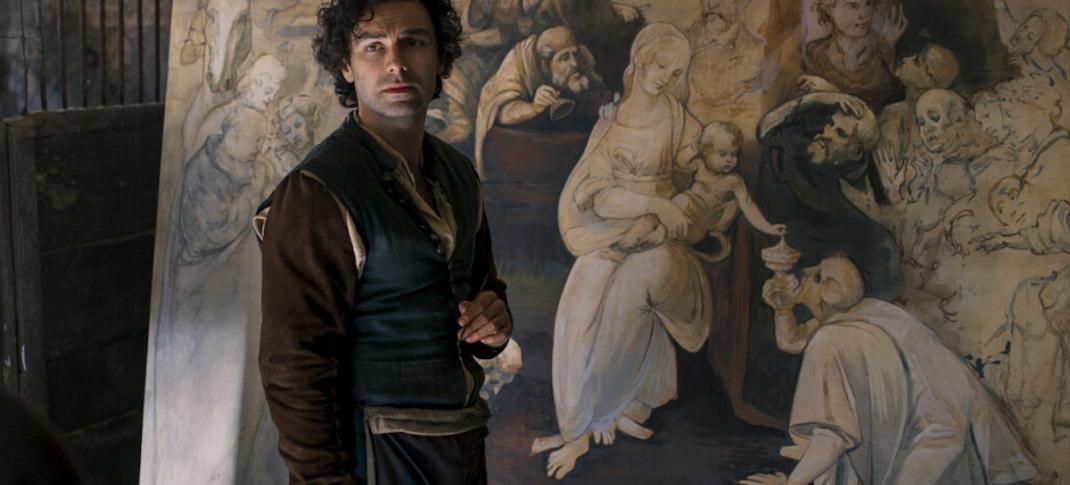
Leonardo -- “Episode 102” -- Image Number: LEO102fg_0029r -- Pictured: Aidan Turner as Leonardo Da Vinci -- Photo: Lux Vide/Sony Pictures Television -- © 2022 Lux Vide. All Rights Reserved.
© 2022 Lux Vide. All Rights Reserved.
It's not exactly a secret that The CW isn't a network traditionally known for its serious historical dramas. And although its Mary, Queen of Scots-focused series Reign ran for three seasons, its intense love of headbands and colorful prom gown-style court dresses could hardly be called historically accurate. This isn't necessarily a bad thing—and to be fair, I watched every episode of Reign and unironically loved it—but the show is not exactly a prestige period piece. But it does mean something like Leonardo is a strange fit for the network, a relatively straightforward historical drama starring former Poldark leading man Aidan Turner.
Granted, much like Reign, Leonardo plays a bit (okay, a lot) fast and loose with the historical record, making up several notable characters and a murder mystery in the name of entertaining television. However, at its heart, that's what Leonardo is. Look: If you're tuning in, hoping for an earnest high-end drama or character study here, you will be disappointed. The framework of the series requires a particular (read: large) suspension of disbelief to work, as it seems to think its audience is more interested in the twists of the mystery it has just created from whole cloth than any profound truths about the life of man. But, the story is undoubtedly propulsive, with a plot full of poisonings, political machinations, and betrayals. Even if you may not be able to articulate precisely why you're suddenly so invested in this made-up tale, you'll still push play on the next episode.
The show introduces us to Leonardo in two different timelines: One, in which he is a fresh-faced apprentice at the very beginning of his journey to greatness, and another, set sixteen years later, where he is a brooding, grubbily bearded prisoner accused of murdering his muse and BFF Caterina de Cremona (Matilda De Angelis) and is being questioned by an officer of the Podesta known as Stefano Giraldi (Freddie Highmore). The timelines shift back and forth as multiple figures from Leonardo's life appear to be questioned by the police and occasionally make dour or downright weird pronouncements about how the genius valued art above all other things and is unstable enough to kill someone.
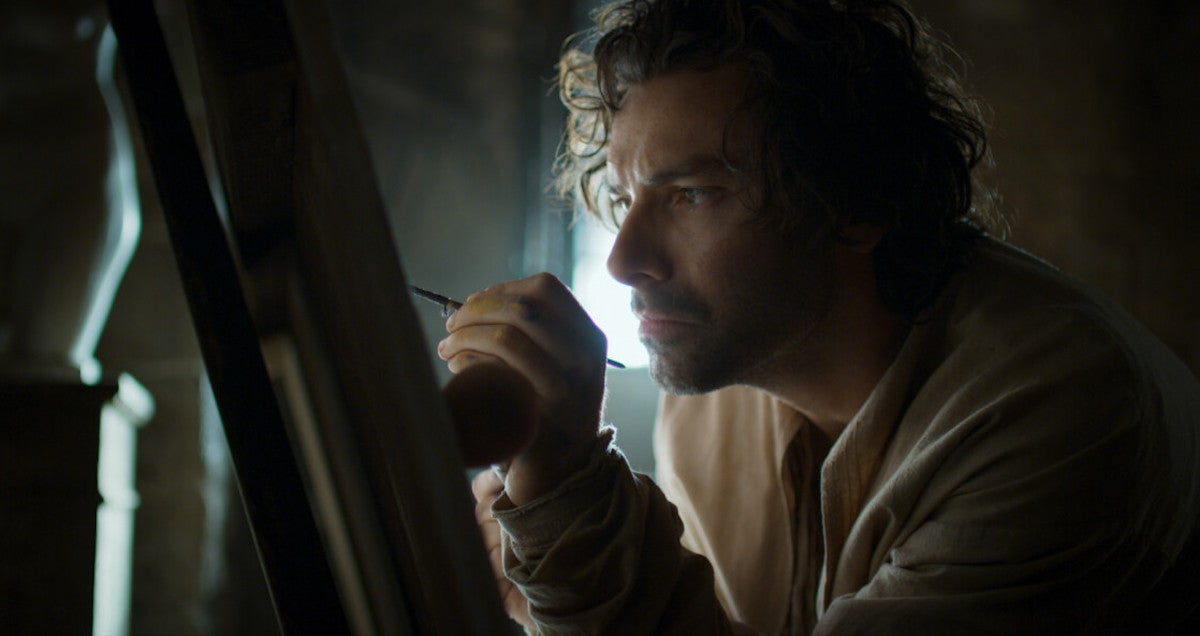
Leonardo was Turner's first TV role after he wrapped his five-year run on Poldark, and it's easy to see why he might be drawn to playing a character like this, who is in so many ways the antithesis of Ross's staid, surly demeanor. Turner's Leonardo is equally intense and layered but much more emotionally open, full of awe at the wonder of the world around him, fascination at the people who inhabit it, and utterly determined to achieve greatness. He successfully sells the sequences of manic inspiration and productivity that seem to drive the character, all shot through with the hunger of an outsider who is still desperately searching for the approval his father has long denied him.
In short: Leonardo is an entire mess, but it's part of the reason it's so easy to like this portrayal. From chaos often springs genius, right? Since the real-life Da Vinci famously had no female friends and never married, it's interesting that Leonardo chose to give their version of the artist a weirdly codependent and challenging relationship with a woman. (And a made-up one at that!) It's not to say that Leonardo and Caterina aren't compelling to watch. However, their more-than-friends yet less-than-lovers dynamic means that the truth of their bond remains challenging to pin down throughout and their real motivations hard to identify.
Leonardo is depicted as dangerously ambitious, but Caterina's determination not to return to the life of a serving girl ultimately leads her to make questionable and even reckless choices. Choices that might have landed with more impact and clarity had we been shown any real hint at her backstory (beyond a few dropped references to life on the streets and the story of the terrifying near-death experience that left the scar on her back.)
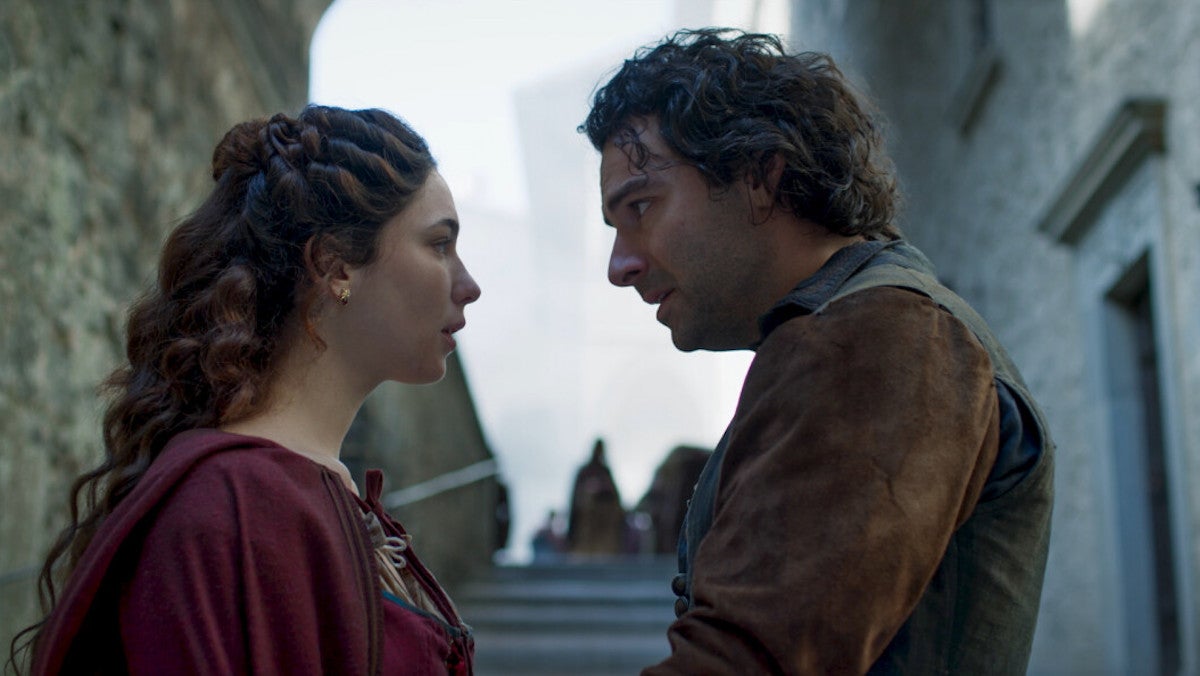
It's also unfortunate that one of the series' only notable women is a Dead Girl Walking from the opening moments of its first episode. We know from the start that Caterina's death is inevitable; in fact, it is the precipitating event for much of the show's action. That's a shame in and of itself because Caterina is quite charming. Her relationship with Leonardo provides a much-needed humanizing effect on the man who spends most of his screen time rambling about esoteric ideas of truth and beauty. But also because the only other central female character who appears in the four episodes available to screen for critics is Ginevra de' Benci.
Her (honestly gorgeous) portrait remains the only da Vinci painting in the Americas today. (Beatrice D'Este pops up at several points, but she seems to exist in this show only because she also has to die. Her death is famously why Ludovico Sforza became so focused on embellishing the church of Santa Maria delle Grazie, where Da Vinci's The Last Supper will one day reside.) On the plus side, the series' supporting cast is top-notch. James D'Arcy is having the time of his life as Ludovico, the influential Duke of Milan, whose obsession with maintaining control over the city-state and cementing his own legacy leads him to commit terrible acts, even as he commissions stunning art from Leonardo. Highmore may have the most thankless task of the ensemble, forced to conduct a murder investigation that everyone knows from the series' first moments will fail (thanks, history!) However, his presence remains magnetic.
Leonardo is not precisely what one might call the definitive dramatic take on the life of an extraordinary person. Hopefully, HBO swoops in and takes care of that someday. But, to its credit, it's a fun, fast-paced ride that might inspire you to dig further into who this great man was. (And at this point, I need to find out who killed Caterina, so I'm in.)
Leonardo premieres on Tuesday, August 16, 2022, on The CW and will air new episodes weekly.


